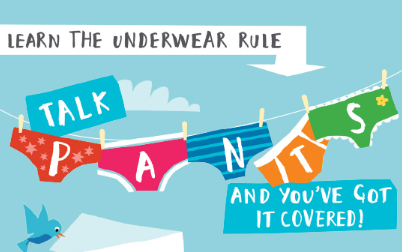
This week for me has been one of deep reflection on matters sexual abuse of children. I have come across two disturbing cases of paedophilic behaviour on social media, something that raises a lot of questions especially because it’s posted online leaving the rest of us shocked, petrified and angered to say the least.
However, we can always beat abusers at their game if we are knowledgeable about how we can teach children important messages , like their body belongs to them and they should tell an adult if they are upset or worried.
In my line of work as a child protection professional, I have realized that parents and caregivers rarely talk to their children about their bodies. Yet, children look up to us to learn and understand their world.
As Child protection practitioners we are constantly finding ways to educate children on how to stay safe. I believe in secure childhoods and thus the need for all of us to learn how to give sound and practical advice to children. As much as conversations like these are hard, the aim is not to upset or scare families and children alike, but rather to create awareness around us on how children can also be their own person in protecting their bodies.
One of the greatest resource in talking to your children about their bodies is TALK PANTS. This is a guide developed by NSPCC (National Society for the Prevention of Cruelty to Children) . The guide they offer has been created with parents and caregivers in mind and it will help you to have that important conversation with your 4-11 year old child about their body.
From P through to S, each letter of PANTS provides a simple but valuable lesson that can help keep a child safe.
Privates are Private.
Your underwater covers up your private parts and no one should ask to see or touch them. Sometimes a doctor or nurse a member of family might have to, but they should always explain why and ask you if it’s OK first.
Always remember your body belongs to you.
No one should make you do thing that make you feel embarrassed or uncomfortable. If someone tries to touch you underneath your underwear, say NO- and tell someone you trust.
No means No.
No means no and you always have the right to say “no” even to a family member or someone you love. You are in control of your body and the most important thing is how you feel.
Talk about secrets that upset you.
There are good and bad secrets. Good secrets can be things like surprise parties or gifts for other people. But bad secrets make you feel sad, worried or frightened. You should always tell an adult bad secrets right away.
Speak up, someone can help.
Talk about things that make you worried or anxious or upset. If you ever feel sad or upset, talk to an adult you trust. It can be a family member or a teacher or a friend to your parent.
As mentioned earlier, this is just a guide to talking to your children about what is appropriate behaviour around their bodies. You know your child better than anyone else and you will know how much detail to go. Talking PANTS is not talking about sex. However, should it come up, it’s valuable to take time to take the opportunity to talk.
If your child says something that worries you, get some advice from professionals. Always react with love, support openness and reassurance.
*Images and content sourced from nspcc.org.uk/pants.
